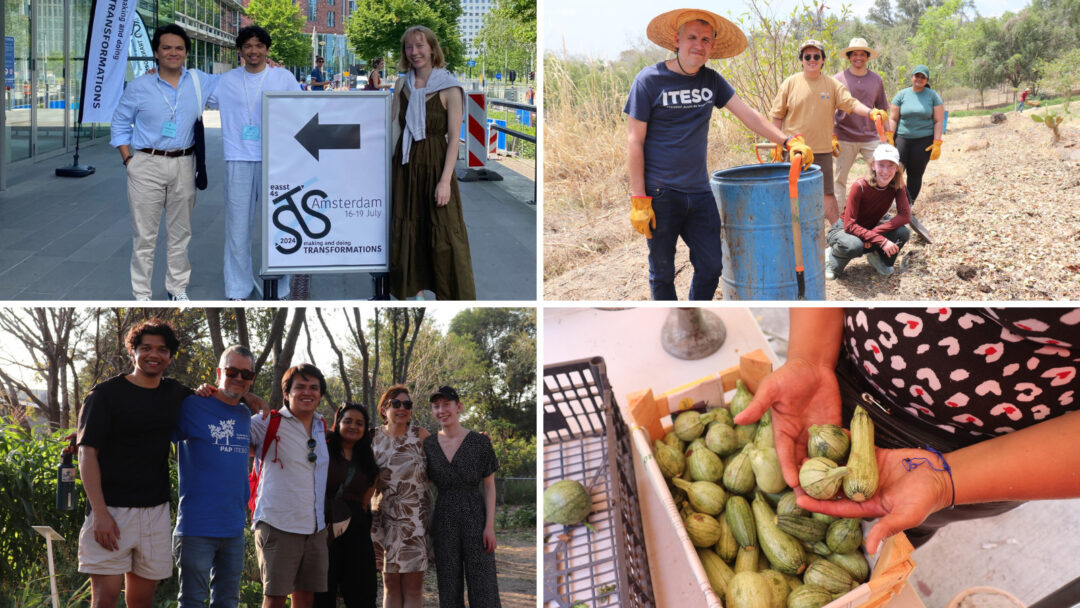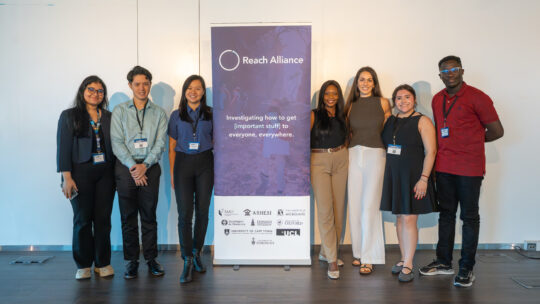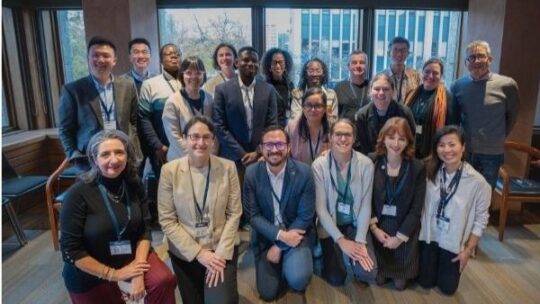News: Latest News
Investigating Food Sovereignty through Alternative Food Networks in Jalisco, Mexico

As one of the Mexican states most well-known for its food production, Jalisco, Mexico, has a deep-rooted cultural history associated with the health of the land and the variety of crops grown there. However, in the face of free-trade agreements, rising agro-industrial industries, and Mexico becoming a global hub for mass-market exports, Jalisco’s farmland and water sources are struggling to keep pace with production and the state’s citizens are losing access to their healthy, traditional foods. Small-holder farmers are being outcompeted by large-scale farming facilities, and certifications like “organic” aren’t designed with small businesses in mind.
In response to such challenges, alternative food networks have emerged in many parts of the state as a community-focused solution to ensure that nobody in food supply chains is left behind.
The Reach Alliance caught up with University of Toronto Reach student researchers Shreya Agarwal, Alonso Munoz Sanchez, Maya Povhe, and Charles Pinto to learn more about their Reach research experience and recent participation at the European Association for the Study of Science and Technology (EASST) conference in Amsterdam.
Shreya, your team recently returned from conducting primary research in Mexico. Tell us about that experience.
The field experience in Guadalajara, Mexico, was enriching and provided valuable insights into alternative food networks (AFNs). Working closely with our collaborators at ITESO, and our faculty mentors Professor Erica Di Ruggerio and Gregorio Leal Martínez, we conducted interviews with diverse stakeholders, including local farmers, market organizers, community activists, and academics. These actors provided important context for how local market destinations promote a direct consumer-producer relationship, to enhance equality, sustainability, and welfare within the food landscape.
One key insight was the importance of working together as a community to sustain local knowledge and traditional farming practices, aligning with fair trade, social justice, and agroecological well-being that reflect local community values. The AFNs displayed adaptability and resilience in promoting sustainability and local production in the face of economic and environmental pressures, which was a key component of their success.
The experiences and knowledge gathered will be invaluable in informing our report, providing a comprehensive understanding of the operations of AFNs and contributing to the broader discourse on sustainable and equitable food landscapes.
Alonso, this month your team attended the European Association for the Study of Science and Technology (EASST) conference in Amsterdam to host a panel on the Alternative Food Networks in Guadalajara, Mexico. How did that go?
Presenting our research while writing our case study was an excellent opportunity to receive feedback on better communicating our findings. My key takeaway was a small yet important one: a professor from a Mexican university suggested using the word maize instead of corn. Having conducted all our interviews in Spanish, we felt that our English interpretation did not fully reflect the political importance of maize (maíz in Spanish) production and consumption. Receiving clarity was crucial to aligning our research with this significant political struggle.
The conference was predominantly attended by professors and doctoral candidates. It was extremely rewarding to present alongside them as undergraduate students and learn from them during the panels and after-conference events. The conference is also a key event in the Science and Technology Studies (STS) field. STS examines how scientific and technological innovations are influenced by, and in turn influence, society. The numerous discussions throughout the conference highly resonated with Reach’s emphasis on sustainable development — particularly in fostering an innovation and growth landscape that leaves no one behind.
Maya, how has your team approached finding and executing knowledge-translation opportunities at this stage in your research?
Our team has always made knowledge translation a priority, especially considering how important food systems are for everyone on the planet. As a group, we try to tell our case study story in the most inclusive way possible. We conducted our interviews in Spanish, and aim to create insights that can reach global, non-academic, and non-English-speaking audiences through photography and diagrams.
Knowing that our case study is practical and relevant to anyone from any background or industry has prompted us to apply for multiple conferences and programs, some specific to our subject area in agriculture and others in multidisciplinary contexts.
To any researchers looking to find opportunities to present or publish their Reach case study data in international platforms, our advice would be to do a monthly google search about opportunities in your field, sign up for academic newsletters, and follow academic social media accounts online. Opportunities to share work can pop up at random times and they often require applications to be submitted months in advance. So the best way to seize those chances is to focus on making yourself aware of them.
Charles, why is this research important in Mexico? How is it important for the global community?
This research is valuable in Mexico because it helps us to better understand how urgent challenges of food insecurity and sovereignty can be effectively addressed. With nearly half of the population unable to secure adequate food, the situation demands immediate attention. By highlighting the detrimental impacts of industrial agriculture, such as environmental degradation, loss of traditional farming practices, and increased poverty, this research underscores the need for sustainable, community-based solutions, particularly in an area where community and food have historically been inextricable.
For the global community, this research underscores the importance of localized, sustainable food systems that can be adapted to various cultural and geographical contexts. We hope to reach policymakers, researchers, and activists worldwide who can draw parallels to their own regions and advocate for similar initiatives. Our work aims to inspire global actions toward more equitable and sustainable food systems, emphasizing that food sovereignty and security are universal rights. The impact we hope for includes policy changes, increased support for small-scale farmers, and the proliferation of AFNs globally, contributing to a more just and sustainable world.


